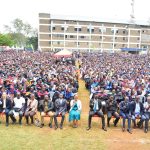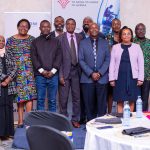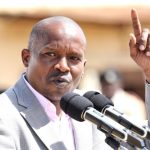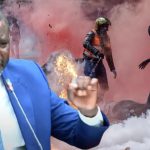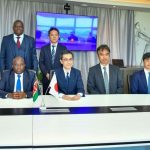
AFP
Somalia will hold presidential elections on May 15, state TV announced Thursday, broadcasting a statement by a parliamentary committee tasked with organising the long-delayed polls in the fragile Horn of Africa nation. The election is well over a year behind schedule, marred by deadly violence as well as a power struggle between President Mohamed Abdullahi Mohamed, better known as Farmajo, and Prime Minister Mohamed Hussein Roble.
Somalia’s international partners have been pushing for the process to pick up speed, fearing the delays sap efforts to tackle entrenched problems, including the fight against Al-Shabaab jihadists and the threat of famine.
“In consideration with the current circumstances of the country, the members agreed 15 May to be the day for the election of the president,” Mohamed Ibrahim Moalimu, a member of the parliament election committee, said in a Facebook post on Thursday.
A three-year $400-million (380-million-euro) aid package from the International Monetary Fund (IMF) will automatically expire by mid-May if a new administration is not in place by then, a move that would plunge the country into deeper peril.
After Farmajo’s term ended in February 2021 without a new vote taking place, he attempted to extend his rule by decree, triggering violent street battles in Mogadishu as rival factions clashed. Following international pressure, he appointed Roble to seek consensus on a way forward, but the process has progressed painfully, stoking fears of further instability.
In addition to the feud between Farmajo and Roble, the central government has also been embroiled in disputes with certain states, slowing down the voting process.
Deadly attacks
The Al-Qaeda-linked Al-Shabaab, which has been fighting the government for over a decade, has staged frequent attacks in recent months, including a suicide bombing in March that killed two local lawmakers.
On Tuesday, an attack on an African Union (AU) base killed 10 Burundian peacekeepers, according to Burundi’s army. It was the deadliest raid on AU forces in the country since 2015.
As the militants have ratcheted up their assaults, the rift between Farmajo and Roble has continued to widen, with the election of the lower house speaker delayed last week by a dispute over who should provide security at the voting venue. Meanwhile the country is grappling with a worsening drought which threatens to drive millions into famine, with young children facing the greatest risk.
Thursday’s announcement “will come as a major relief for most Somalis and their international partners, as it signals the end of an electoral cycle that has dragged on for way too long and distracted from other priorities,” said Omar Mahmood, an analyst at the International Crisis Group (ICG) think tank.
“The rapid pace of developments over the past few weeks clearly points to momentum and a desire to wrap all of this up,” Mahmood told AFP.
Somalia has not held a one-person, one-vote election in 50 years. Polls follow a complex indirect model, whereby state legislatures and clan delegates pick lawmakers for the national parliament, who in turn choose the president.
Al-Shabaab jihadists controlled Mogadishu until 2011 when they were pushed out by an AU force, but still hold territory in the countryside. The militants regularly strike at civilian, military and government targets in Somalia’s capital and elsewhere in the country.

